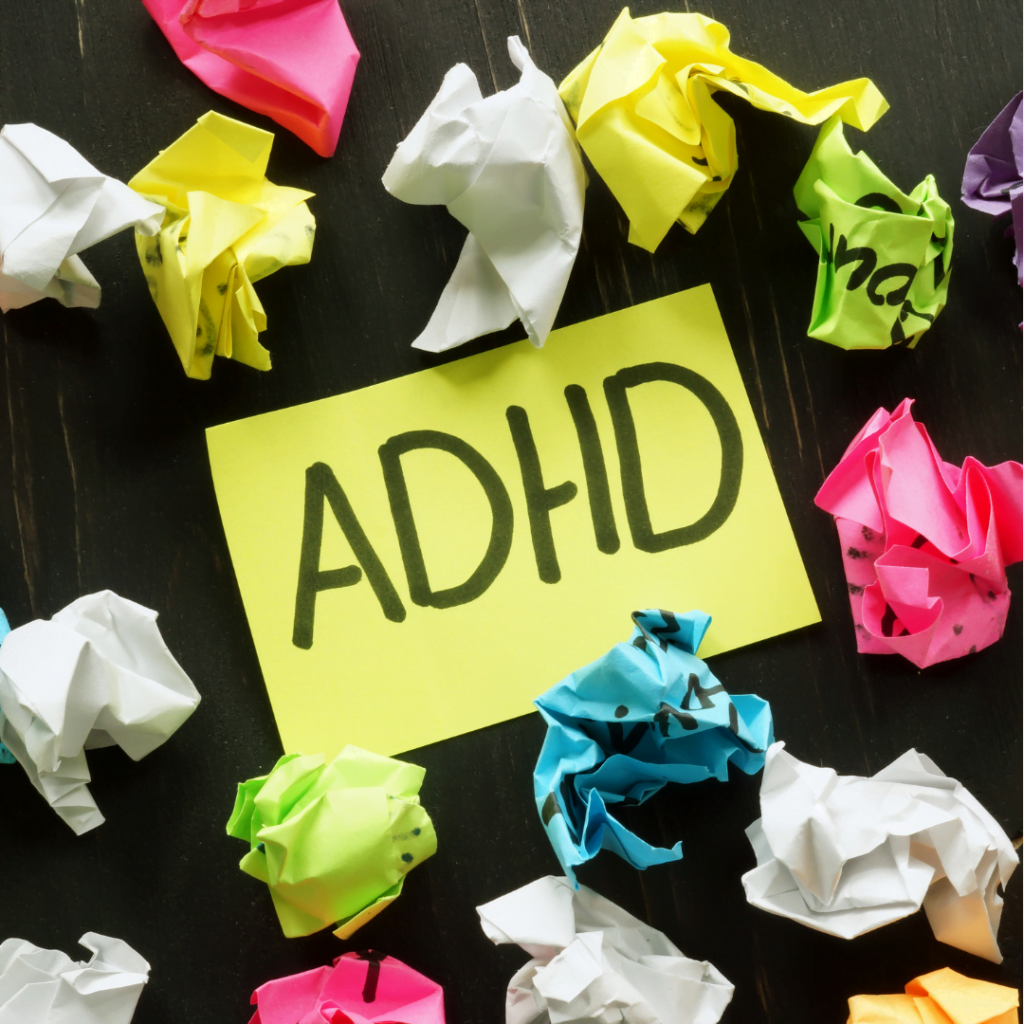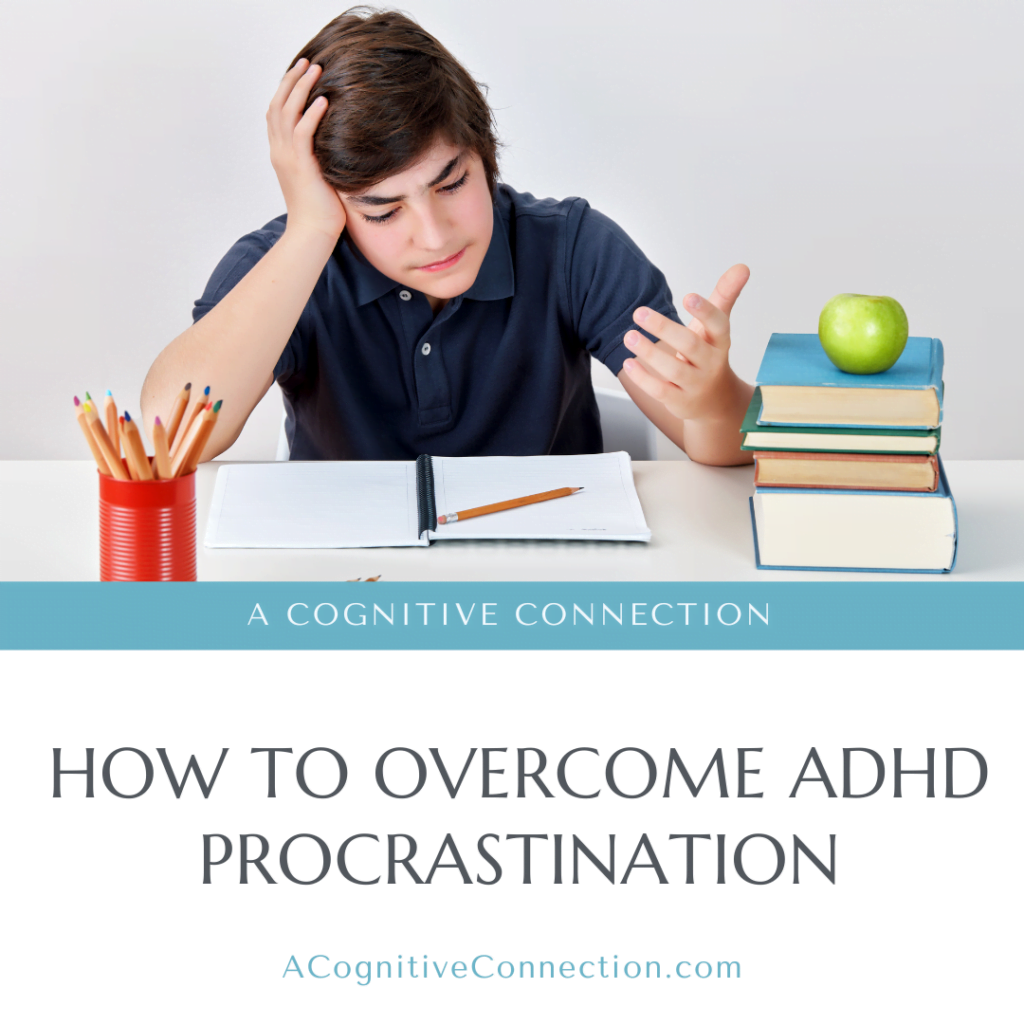Procrastination can be a common struggle for many individuals, but it manifests profoundly in those living with Attention Deficit Hyperactivity Disorder (ADHD). The challenges associated with ADHD often exacerbate procrastination, making tasks seem insurmountable or overwhelming. However, understanding and overcoming ADHD-related procrastination is an achievable goal. In this guide, we aim to provide compassionate and professional advice to assist those battling ADHD procrastination, empowering them to take control of their time and productivity.
Here at A Cognitive Connection, we help people overcome many different cognitive challenges including issues related to memory, focus, concentration, and more. We are committed to helping you live your best life with brain training programs as well those who have physical disabilities.

Strategies to Overcome ADHD Procrastination
Break Down Large Tasks:
Breaking down larger tasks into smaller, more manageable parts is a highly effective strategy in combating ADHD-related procrastination. This approach reduces the intimidation factor associated with larger tasks, making them seem less overwhelming. The process involves prioritizing the task at hand, then systematically dividing it into subtasks. Each subtask should be a standalone activity that contributes to the completion of the larger task.
For instance, if the task is to clean your house, you could divide it into subtasks like cleaning the living room, kitchen, bedrooms, etc, and then further break those down into even smaller tasks such as dusting, vacuuming, and so on.By tackling these smaller tasks one at a time, you can make steady progress toward your larger goal without feeling overwhelmed.
Use a Planner:
Utilizing a planner or digital calendar serves as a visual representation of your tasks, deadlines, and priorities, making it an effective tool to combat ADHD procrastination. By having all your responsibilities laid out in front of you, you can better organize and manage your time.
Planners or digital calendars allow for tasks to be broken down by day, week, or even hour, depending on your personal needs and preferences. They also allow for flexibility, as tasks can be shifted around to accommodate unexpected events or changes in schedule. Importantly, they provide a space to set concrete deadlines, encouraging action and discouraging delay.

Establish Routines:
Establishing regular routines is another beneficial strategy to mitigate the effects of ADHD procrastination. Routine can provide structure and predictability to your day, which can in turn reduce anxiety and feelings of overwhelm. When your day is structured, you know what to expect and when to start certain tasks, reducing the decision-making process and the likelihood to procrastinate on them.
Regular routines can include a consistent wake-up time, set meal times, allocated work hours, and a specific bedtime. This helps to create a rhythm to your day, allowing for an improved focus and better time management.
Time Management Techniques:
Effective time management techniques are instrumental in overcoming ADHD procrastination. One such technique is the Pomodoro Technique, an approach that encourages working in focused intervals separated by short breaks. This technique involves setting a timer for a specific period, usually 25 minutes (known as one “Pomodoro”), during which you focus solely on the task at hand.
When the timer rings, you take a short break, usually five minutes. After completing four “Pomodoros,” you take a longer break, typically 15-30 minutes. This technique reduces the feeling of being overwhelmed by a task, and the regular breaks can help maintain motivation and focus.
Mindfulness Practices:
Mindfulness practices, often associated with meditation, are an increasingly recognized strategy for managing ADHD-induced procrastination. These practices center on the concept of full attention and awareness of the present moment, which is particularly beneficial for those struggling to maintain focus.
When we allow our minds to wander or become distracted by thoughts of past events or future worries, it becomes all the more difficult to concentrate on the task at hand. By practicing mindfulness, we learn to stay engaged with the present task, reducing the likelihood of procrastination.

Seek Professional Help:
If procrastination persists, consider seeking help from a professional who specializes in ADHD. They can provide personalized strategies and support for managing procrastination.
Remember, overcoming procrastination is a journey. Don’t be too hard on yourself if you experience setbacks. With time, patience, and persistence, you can make significant progress.
A Cognitive Connection: Here For You
Overcoming ADHD procrastination is not an overnight process but a journey that requires patience, persistence, and self-compassion. By incorporating strategies such as task division, planning, establishing routines, practicing time management techniques, mindfulness, and seeking professional help, you can navigate your way towards greater focus, productivity, and overall well-being. Remember, at A Cognitive Connection, we are committed to walking this journey alongside you, providing the necessary tools, resources, and support to help you conquer ADHD-induced procrastination. You are not alone in this journey, and every step forward is a victory worth acknowledging.


